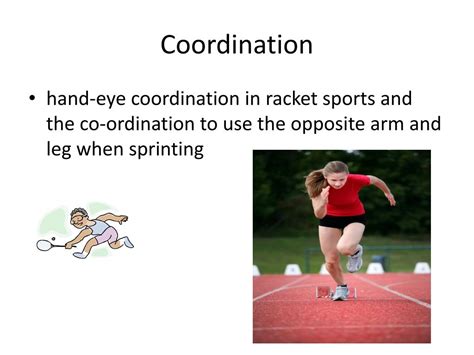Coordination Skills: Examples And Definition Explored

Coordination skills are essential for success in both personal and professional settings. The ability to effectively coordinate tasks, people, and resources can lead to increased productivity, improved teamwork, and successful project outcomes. In this article, we will explore the definition of coordination skills and provide examples to help you better understand their importance.
What are Coordination Skills?
Coordination skills refer to the ability to synchronize and harmonize various elements to achieve a common goal. It involves organizing, planning, and directing activities in a way that ensures efficient use of resources and maximizes productivity. Effective coordination requires strong communication, problem-solving, and decision-making skills.
Examples of Coordination Skills
Here are some examples of coordination skills in different contexts:
- Project Management: A project manager must coordinate tasks, timelines, and resources to ensure the successful completion of a project.
- Event Planning: An event planner must coordinate vendors, logistics, and participants to ensure a smooth and successful event.
- Teamwork: In a team setting, coordination skills are essential to ensure that team members work together effectively towards a common goal.
- Supply Chain Management: Coordinating the movement of goods, materials, and information across the supply chain is crucial for efficient operations.
- Emergency Response: During a crisis or emergency situation, coordination skills are vital to ensure a timely and effective response.
- Customer Service: Coordinating customer inquiries, complaints, and requests requires effective communication and problem-solving skills.
- Logistics: Coordinating the transportation, storage, and distribution of goods is essential for a smooth supply chain.
- Team Sports: In team sports, coordination skills are necessary to synchronize movements and strategies among team members.
- Multitasking: Coordinating multiple tasks and priorities simultaneously is a valuable skill in today’s fast-paced work environment.
- Time Management: Coordinating schedules, deadlines, and priorities is crucial for effective time management.
The Importance of Coordination Skills
Coordination skills play a crucial role in various aspects of life, including personal relationships, education, and professional careers. Here are some reasons why coordination skills are important:
- Improved Productivity: Effective coordination ensures that tasks are completed efficiently, reducing wasted time and resources.
- Better Communication: Coordination skills require effective communication, leading to better understanding and collaboration among team members.
- Enhanced Problem-Solving: Coordinating tasks often involves identifying and resolving issues, leading to improved problem-solving skills.
- Successful Project Outcomes: Proper coordination can lead to successful project outcomes, meeting deadlines and achieving desired results.
- Stronger Teamwork: Coordination skills foster teamwork and cooperation, creating a positive work environment and improving team dynamics.
- Effective Resource Allocation: Coordinating resources ensures that they are allocated efficiently, minimizing waste and maximizing productivity.
- Adaptability: Coordinating tasks often requires flexibility and adaptability to changing circumstances, improving overall resilience.
- Improved Time Management: Coordination skills help individuals prioritize tasks and manage their time effectively.
- Enhanced Leadership Abilities: Effective coordination is a key trait of successful leaders, allowing them to guide and motivate their teams.
- Customer Satisfaction: Coordinating customer interactions and inquiries ensures a positive customer experience and satisfaction.
Conclusion
Coordination skills are crucial for success in various areas of life, including personal relationships, education, and professional careers. The ability to effectively coordinate tasks, people, and resources leads to increased productivity, improved teamwork, and successful outcomes. By developing and honing your coordination skills, you can enhance your overall performance and achieve your goals more efficiently.
FAQs
1. What are some common coordination skills?
Common coordination skills include project management, event planning, teamwork, supply chain management, emergency response, customer service, logistics, team sports, multitasking, and time management.
2. How can I improve my coordination skills?
To improve your coordination skills, you can practice effective communication, prioritize tasks, develop problem-solving abilities, enhance your time management skills, and seek opportunities to work in team settings.
3. Why are coordination skills important in the workplace?
Coordination skills are essential in the workplace as they improve productivity, foster teamwork, enhance problem-solving abilities, and lead to successful project outcomes.
4. Can coordination skills be learned?
Yes, coordination skills can be learned and developed through practice, training, and gaining experience in various contexts.
5. How do coordination skills contribute to effective leadership?
Coordination skills are key to effective leadership as they enable leaders to guide and motivate their teams, allocate resources efficiently, and ensure successful project outcomes.
